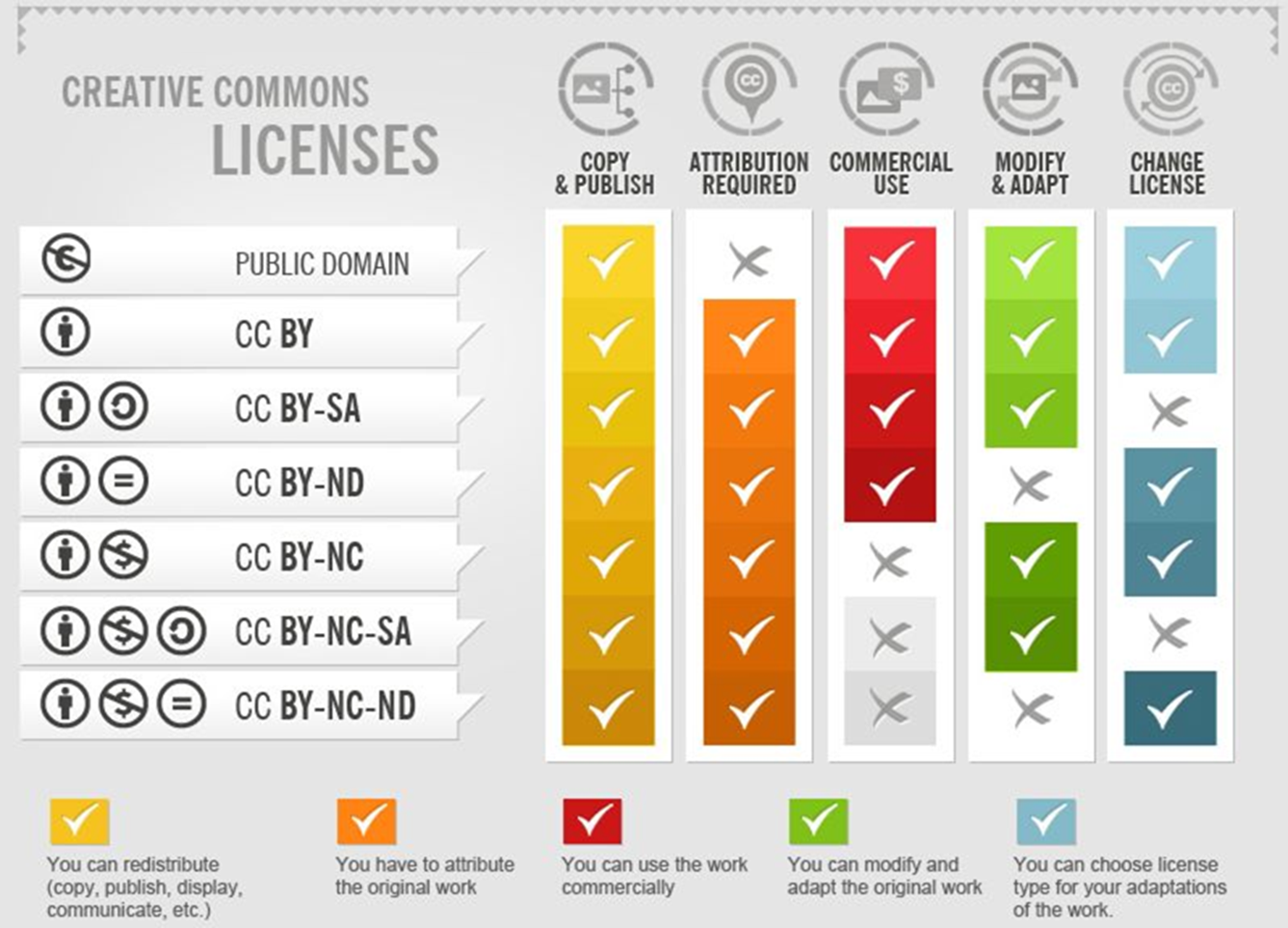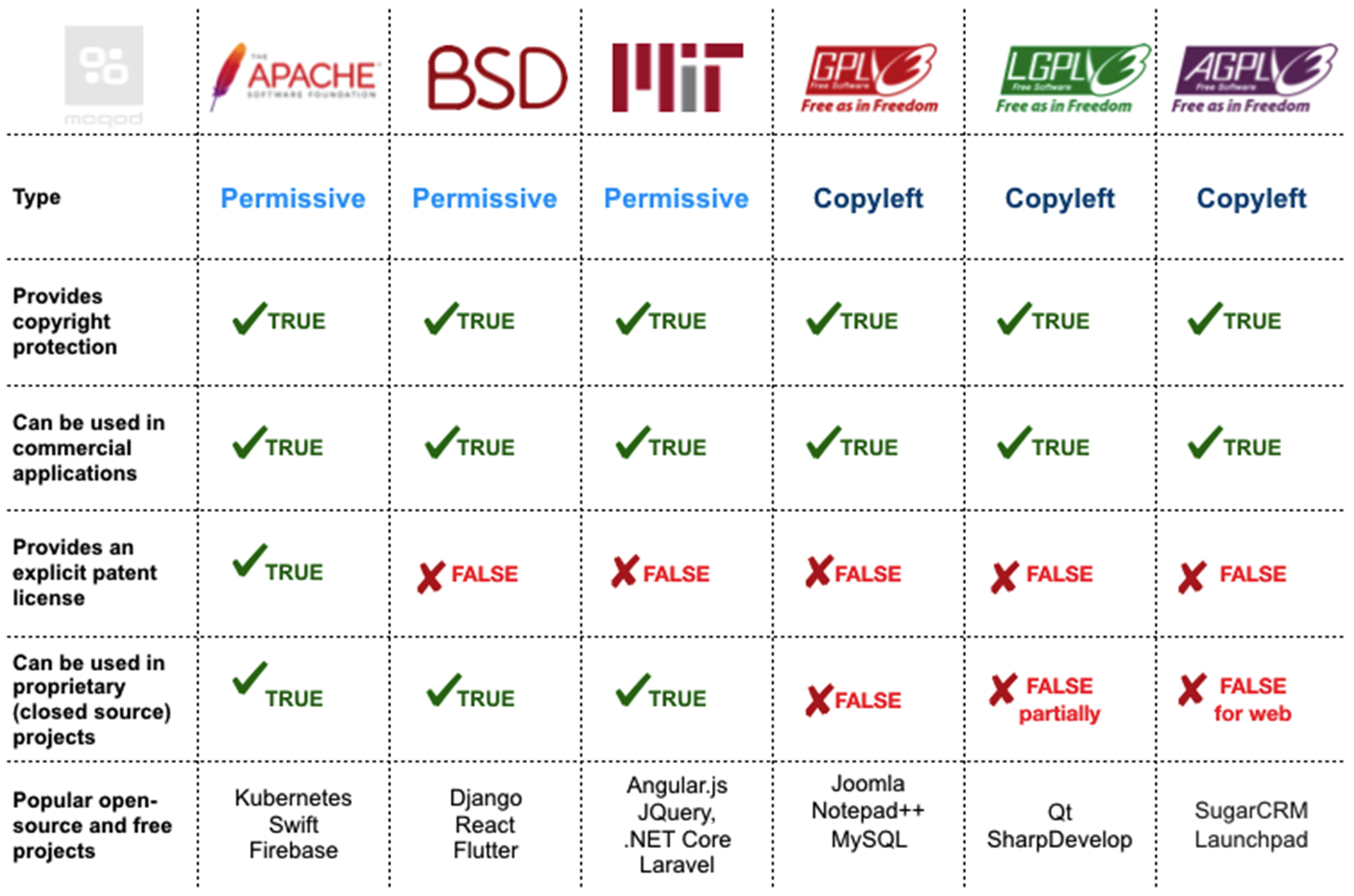Licenses are a standardised way to share data/code and let anyone know what it is that they are allowed to do with it. If you share your research without a license, you are not making clear how you wish the research to be used which might prevent it being used the way you intend.
Data Licenses
For data, we recommend to use CC (Creative Commons) licenses. (If you used the TU Delft template in DMPonline, everything starting with a CC in question 32 is applicable to data.)
TU Delft recommends CC-BY (which is also quite standard in publishing articles) and allows reusers to cite the original work if they reuse it.
The more letters these CC licenses have, the more restrictions they place on re-use.
NC means non-commercial use is prohibited (this includes non-commercial platforms such as blogs, ResearchGate/Academia.edu!)
SA stands for share alike, which means that you have to apply the same license.
ND means non-derivative, which means that reusers can only reuse the data in the same form (which is quite restrictive!).

Software
For software there are different licenses because you can execute software (which makes it more complex). CC-BY and MIT/BSD work quite similar in that they only require citation.
Software license chooser can be used to have a look at software licences, however:
Note that the following licenses are pre-approved by the TU Delft Research Software Policy: MIT, BSD, Apache, GPL, AGPL, LGPL, EUPL, CC0
Read more about these pre-approved TU Delft licences
Dual licensing is a model which allows you to distribute the software under different terms of use. For example, you can release a free open source licence and a proprietary licence at the same time. This can be helpful when you shared the software under a copy left license, which obligates re-users to share the underlying source code if they incorporated the software. For commercial companies who would like to use the software, but do not want to share the source code, you can sell/provide them a proprietary license that does not oblige them to release the source code.
Copyright
Any work you do as part of your tasks as an employee of an organisation in the Netherlands belongs to your employer, not to you, as they are paying you to do the research/work. This means that anyone not working at the university (which may include yourself in the future!) needs permission from the University to work with the data and code if it is not publicly shared under an open licence.
Copyright means that we determine how the work can be re-used by others, and what rights they have in copying, modifying, and distributing the work. When we do not explicitly formalise these rules in a license, the code and data cannot be freely reused by others. This is why licenses are so important!
